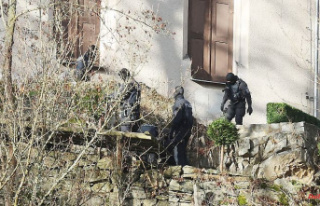When Russia annexed Ukraine's Crimea in 2014, the West reacted with one voice. Among other things, the NATO countries committed to more military spending. But Germany never reached the two percent target - the then Chancellor Merkel is now accusing herself of that.
Former Chancellor Angela Merkel accuses herself of not having pushed hard enough for the Bundeswehr to be better equipped after 2014. Russia was excluded from the G8 after the annexation of the Ukrainian peninsula of Crimea and NATO had troops stationed in the Baltic states, Merkel said in a "Zeit" interview. "But we too should have reacted more quickly to Russia's aggressiveness."
In NATO, the goal was set of spending two percent of gross domestic product on defense, and the Union was the only political force that had this in the government program. "(But) Germany has not reached the two percent target despite the increase. And I didn't give a passionate speech about it every day," she said self-critically.
Merkel, on the other hand, once again defended her decisions towards Russia and Ukraine, such as the conclusion of the Minsk peace agreement. "It was an attempt to prevent exactly such a war," she said of the Russian attack in February 2022. "The fact that it didn't work does not mean that the attempts were wrong," she added to criticism from the Ukraine added.
You have to understand decisions from the time. In early 2015, Russia could have "easily overrun" Ukraine. "And I very much doubt that the NATO countries could have done as much back then as they do now to help Ukraine," Merkel said.
Regarding the controversial gas pipeline Nord Stream 2 through the Baltic Sea, she said that the government should have passed its own law to prohibit the operating license applied for by companies. On the one hand, she did not do this because, in her view, this, in combination with the Minsk Agreement, would have dangerously worsened the climate with Russia. "On the other hand, the energy policy dependency arose because there was less gas from the Netherlands and Great Britain and limited production volumes in Norway."












